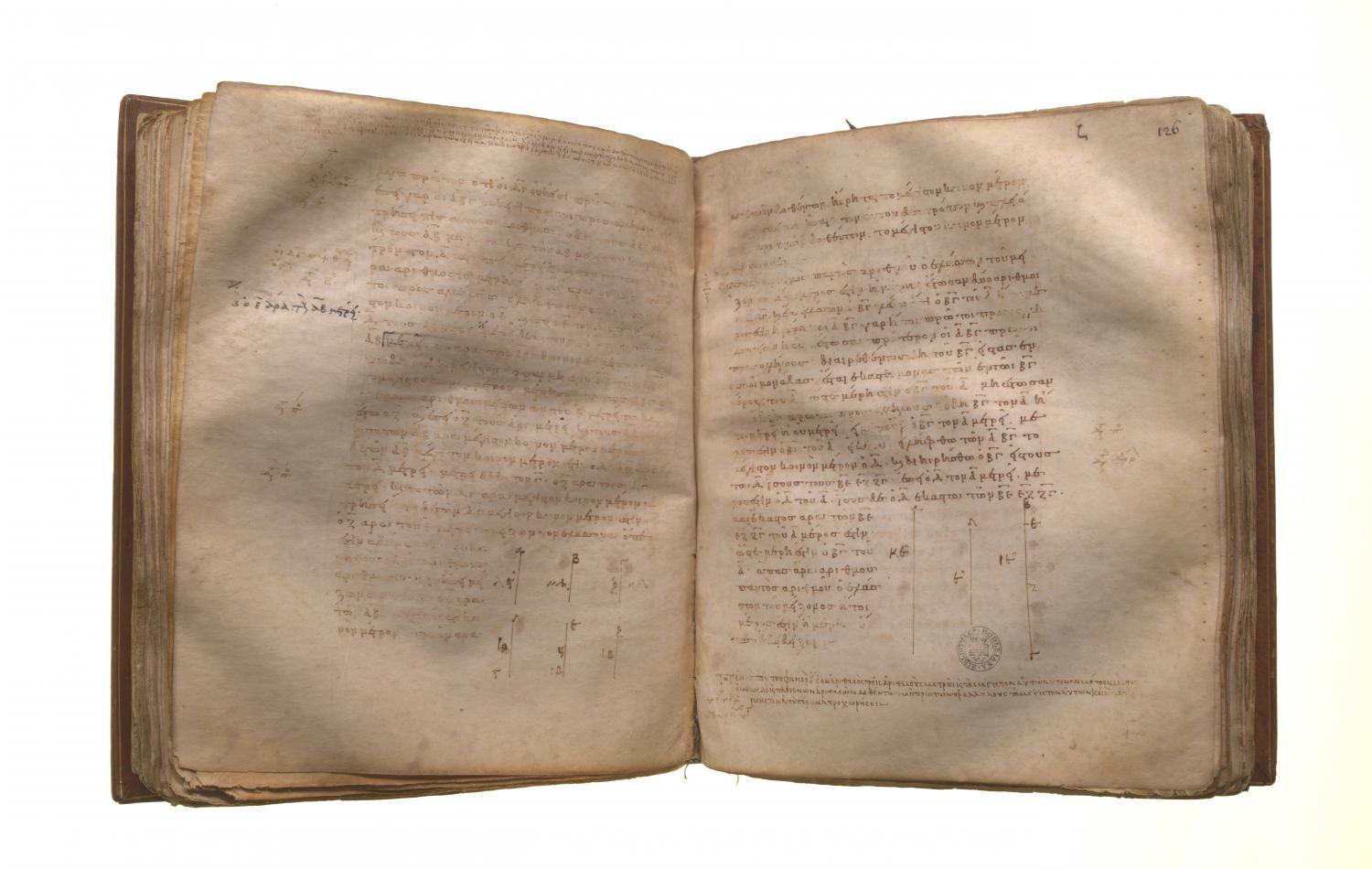Ἅπας ἀριθμὸς παντὸς ἀριθμοῦ ὁ ἐλάσσων τοῦ μείζονος ἤτοι μέρος ἐστὶν ἢ μέρη. Ἔστωσαν δύο ἀριθμοὶ οἱ Α, ΒΓ, καὶ ἔστω ἐλάσσων ὁ ΒΓ: λέγω, ὅτι ὁ ΒΓ τοῦ Α ἤτοι μέρος ἐστὶν ἢ μέρη. Οἱ Α, ΒΓ γὰρ ἤτοι πρῶτοι πρὸς ἀλλήλους εἰσὶν ἢ οὔ. ἔστωσαν πρότερον οἱ Α, ΒΓ πρῶτοι πρὸς ἀλλήλους. διαιρεθέντος δὴ τοῦ ΒΓ εἰς τὰς ἐν αὐτῷ μονάδας ἔσται ἑκάστη μονὰς τῶν ἐν τῷ ΒΓ μέρος τι τοῦ Α: ὥστε μέρη ἐστὶν ὁ ΒΓ τοῦ Α. Μὴ ἔστωσαν δὴ οἱ Α, ΒΓ πρῶτοι πρὸς ἀλλήλους: ὁ δὴ ΒΓ τὸν Α ἤτοι μετρεῖ ἢ οὐ μετρεῖ. εἰ μὲν οὖν ὁ ΒΓ τὸν Α μετρεῖ, μέρος ἐστὶν ὁ ΒΓ τοῦ Α. εἰ δὲ οὔ, εἰλήφθω τῶν Α, ΒΓ μέγιστον κοινὸν μέτρον ὁ Δ, καὶ διῃρήσθω ὁ ΒΓ εἰς τοὺς τῷ Δ ἴσους τοὺς ΒΕ, ΕΖ, ΖΓ. καὶ ἐπεὶ ὁ Δ τὸν Α μετρεῖ, μέρος ἐστὶν ὁ Δ τοῦ Α: ἴσος δὲ ὁ Δ ἑκάστῳ τῶν ΒΕ, ΕΖ, ΖΓ: καὶ ἕκαστος ἄρα τῶν ΒΕ, ΕΖ, ΖΓ τοῦ Α μέρος ἐστίν: ὥστε μέρη ἐστὶν ὁ ΒΓ τοῦ Α. Ἅπας ἄρα ἀριθμὸς παντὸς ἀριθμοῦ ὁ ἐλάσσων τοῦ μείζονος ἤτοι μέρος ἐστὶν ἢ μέρη: ὅπερ ἔδει δεῖξαι.
Any number is either a part or parts of any number, the less of the greater. Let A, BC be two numbers, and let BC be the less; I say that BC is either a part, or parts, of A. For A, BC are either prime to one another or not. First, let A, BC be prime to one another. Then, if BC be divided into the units in it, each unit of those in BC will be some part of A; so that BC is parts of A. Next let A, BC not be prime to one another; then BC either measures, or does not measure, A. If now BC measures A, BC is a part of A. But, if not, let the greatest common measure D of A, BC be taken; [VII. 2] and let BC be divided into the numbers equal to D, namely BE, EF, FC. Now, since D measures A, D is a part of A. But D is equal to each of the numbers BE, EF, FC; therefore each of the numbers BE, EF, FC is also a part of A; so that BC is parts of A.
